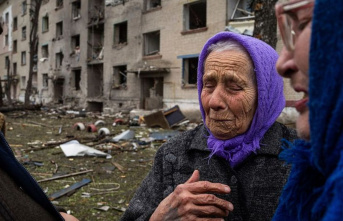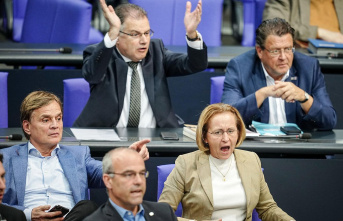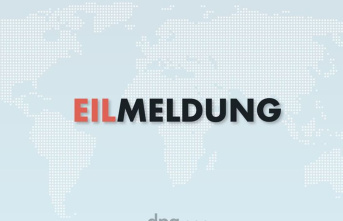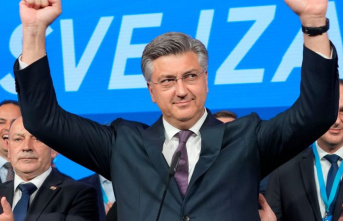As of mid-April in the Ecuadorian port city of Guayaquíl piling the bodies on the streets, as Ecuador Corona-Hotspot of Latin America and Guayaquíl as a city of terror Bergamo in Italy to replace, is also shocked by the virologist Andres Moreira-Soto. Finally, Ecuador is located not far from his home Costa Rica away.
The scientists of the Charité hospital in Berlin thinks: "There is something happening that we must examine scientifically". Moreira-Soto breaks just a few weeks later with a five-member Team of Doctors and understand much better today why Ecuador was at its limits.
"In Guayaquíl was the infection rate was very high. And the Doctors and virologists have had to work with what they had," says Moreira-Soto, who has been researching for years at the Charité, to Arboviruses, but also the Transfer of wild-animal viruses to humans"There was no structured System in terms of the many Corona-Tests, which had to be evaluated. But such a thing is not happened only in Ecuador, but in many corners of the world."
of the population needs more information about the VirusToday, Ecuador is one Infected over 47,000 Corona, half of which is considered to be recovered. Nearly 4,000 people officially died in the small country to the consequences of an infection with COVID-19 in Latin America, only in Brazil, Mexico and Peru, more and more Corona-the Dead.
And for Andres Moreira-Soto a simple reason for this: "Ecuador has made in the shortest possible time is very much on the legs, the passion of the Doctors, despite the difficulties they face, impressive."
The biggest Problem was - as in other Parts of Latin America - is the lack of information, the virologist of the Charité: "Scientific and valid information must be more widespread in the population." In addition, it is lacking in Ecuador, financial resources, and consequently to the Tests.
German experts in the global use ofThat virologists such as Andres Moreira-Soto could ever go to Ecuador, you can thank people like Kirstin Meier. Meier is associate at the German society for International cooperation (GIZ) and is in charge of the Ecuador-use of the SEEG, the Rapidly Deployable group of experts for the health. "The SEEG was founded in 2015 as a response to the Ebola crisis in West Africa. The Federal government wanted to respond faster aufKrankheitsausbrüche," says Meier.
After Sri Lanka, the German experts ventured out to help Dengue fever to contain, in Peru they tested pregnant women on the Zikavirus, in Sierra Leone, they are not Packed in the fight against the carry Lassa fever with. For the Corona-crisis, that is to say: test kits, laboratory supplies and Training of Doctors in Namibia, Benin and Colombia.
Alone, for Ecuador, the Team had 1000 so-called PCR-test kits in the Luggage - "the gold standard," Meier says with a Laugh, "with these you can diagnose for sure whether someone COVID-19 is ill." The rapid tests, which are also in Ecuador in circulation, showed, however, often incorrect results.
decentralisation as a first step,All delivered Corona Tests are designed for the Northern provinces of Esmeraldas, Carchi and Sucumbíos - is the border region with Colombia, in which many Venezuelan refugees and medical help was most needed. "Here in Ecuador is very Central, many samples are sent in the metropolises of Quito and Guayaquíl," says Kirstin Meier.
The Problem is that The patients need up to a week wait for the result, often, her condition deteriorating all the while. The German experts want to promote, therefore, the decentralisation. "Also in the provinces of laboratories need to be able to test. And when a small lab can edit, for example, 100 samples per day, helps the already enormous," says Meier.
Ecuador in the fight against Corona is better < - equipped p> What's in Germany, the Charité hospital in Berlin in the fight against the Coronavirus, is in Ecuador, the INSPI in Guayaquíl, the "Instituto Nacional de Investigación en Salud Pública". And, if you will, is the Director of the Institute, the flagship clinic of Alfredo Bruno something of the Christian Drosten of Ecuador. Bruno was also in the team of researchers, discovered in 2009 in Ecuador, the Influenza Virus AH1N1.on The current Situation in Ecuador, he says: "We have to decrease the Virus is currently under better control, the numbers of new infections, the health system is prepared daily better. Also, the Doctors and the scientists are up to the task."
So Bruno probably thinks also of himself. As the Corona-crisis in Guayaquíl is two months ago, at its peak, to the virologist days no eye. To sleep is not to think, Doctors and laboratories in Ecuador are reaching their limits: "We had to restructure. At that time, we have only worked with five people in the lab, now we are 50."
Respectful look to Germanyespecially the people in Guayaquíl had initially underestimated the Virus and the risk of Infection, according to Bruno. Distances have not been complied with, no masks worn, the national health system was on the brink of collapse. The INSPI-chief looked at the time already a little jealous to Germany: "I was impressed by the speed with which Germany, the Virus has been contained, very."
Alfredo Bruno praised the exchange of views with the colleagues of the Charité, the visit of the Berlin virologists to be the prelude to a long-term Binational cooperation in scientific projects. "We must bring the universities more closely with the public health system together," has Bruno recognized at the Meeting.
whether it Be in Ecuador itself, or with other countries, such as Germany: Only a stronger cooperation could lead in the fight against the Virus to success, says the virologist: this is Because in spite of all the scientific and technical progress of the mankind is also delivered 101 years after the Spanish flu, a small micro-organism is still more or less defenseless.
author: Oliver Pieper
*The contribution of "Charité helps Ecuador in the Corona-crisis" published by Deutsche Welle. Contact with the executives here.
Deutsche Welle Date Of Update: 16 June 2020, 21:26










